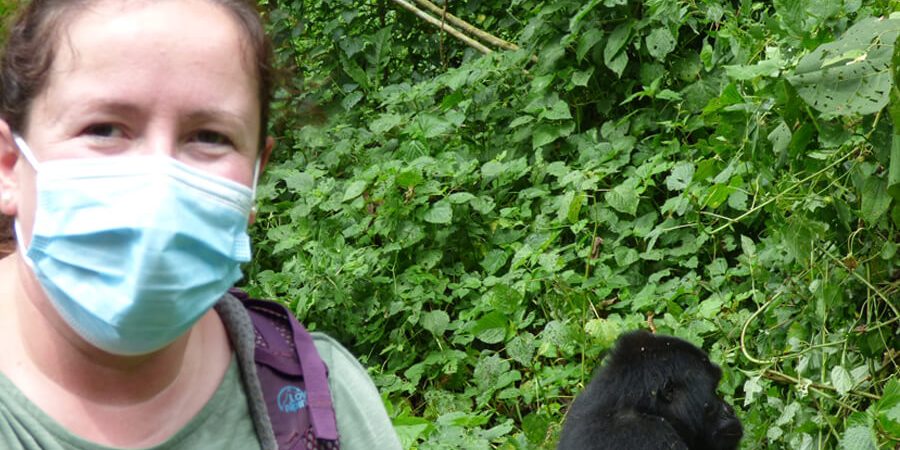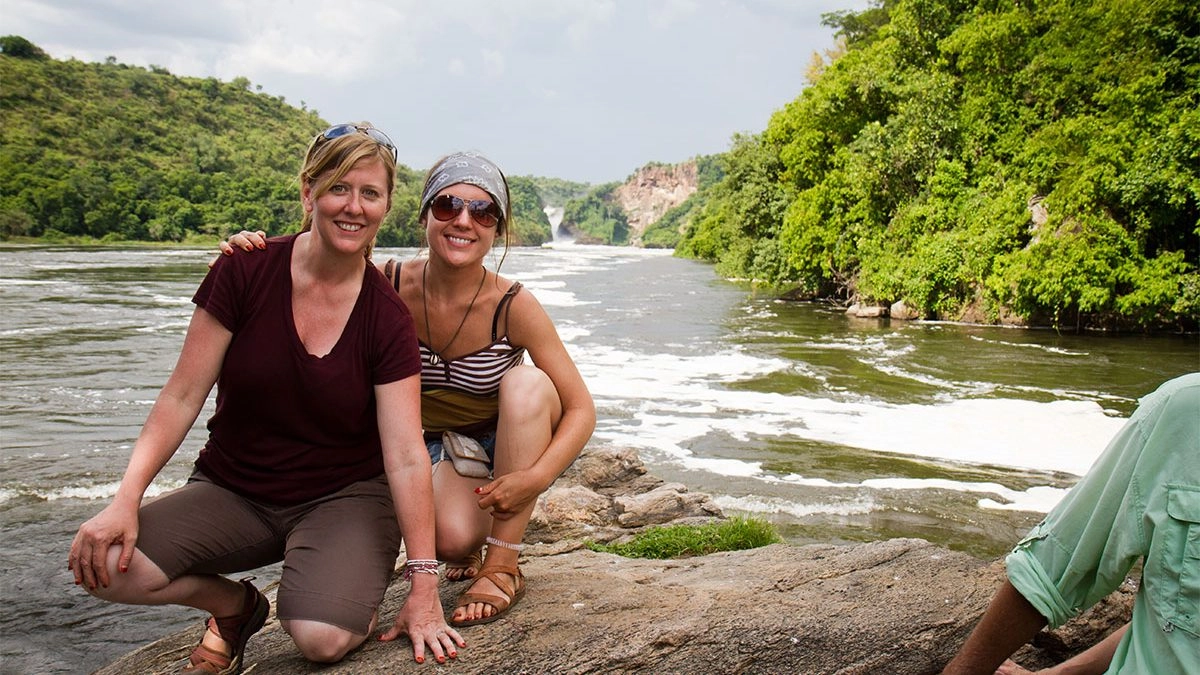Health Guidelines For Uganda Safari In 2024-2025 : You can properly plan your safari to Uganda for activities such as cultural Tours, gorilla trekking, chimpanzee trekking, Bird watching, hiking, and wildlife viewing with the help of these Uganda Health Tips. Travelling raises some additional issues, particularly when it involves going to distant places. Owing to variations in lifestyle and geography, you frequently have to take your comfort and health into account.

We want you to feel completely at ease and to savour every second of your safari experience with us. Good health is necessary for an amazing experience, whether you’re tracking leopards on a night safari or hiking through dense rainforests in search of gorillas.
This brief guide will give you an idea of what to think about and even talk about with your doctor if you going to a Uganda Safari or for any of our other operations. These are just basic recommendations; we will be happy to provide you with advice specific to your travel preferences and itinerary.
UGANDAN HEALTH AND VACCINATION RECOMMENDATIONS
Here are some health and vaccine recommendations to consider before visiting Uganda. Ensure that you seek professional advice from your doctor.
Covid-19.
The coronavirus, which is still prevalent worldwide, has completely changed our way of life. The high vaccination rate is contributing to a decline in hospital admissions and cases. Given how unlikely it is to become ill in the outdoors, vaccinations are advantageous. Moreover, other primates in national parks may contract the coronavirus. Upon arrival, you will need to show proof of your COVID-19 immunisation. For those who have gotten all recommended vaccines, Uganda no longer requires a PCR test.
The warm climate of Africa benefits many creatures, including the mosquitoes that carry malaria. Malaria can be treated with medications, but it is advisable to prevent contracting it. We will provide you with advice on how to avoid mosquitoes, but you should consult your physician for specific advice. Some travellers just take antimalarial drugs to get their bodies ready for trip.
Yellow Fever
Due to its high contagiousness and lack of treatment, yellow fever is among the most important vaccines for an African safari. A single vaccination is the only way to prevent it. You do not require a second vaccination if you are already immune to yellow fever.
After receiving a yellow fever vaccination, you will receive a vaccination certificate, which you might need to present when visiting certain countries or national parks. At least ten days prior to your trip, make sure you have received your yellow fever immunisation.
diarrhoea
Maintaining personal cleanliness and maintaining control over the quality of your drinking water can help prevent this sickness. Most places in the nation have access to bottled water, but if you intend to travel independently and not with a tour operator, you should still pack some medication in case of emergency.
Cholera, hepatitis, and tetanus.
As per your doctor’s advice, you can receive vaccinations against hepatitis, cholera, and tetanus. If someone is dealing with conditions that could lead to constriction and plans to stay for an extended amount of time, these might be especially important.
HOW TO STAY SAFE FROM THE ABOVE DISEASES WHEN VISITING UGANDA
Regular Medical Care
If you take any regular medications, make sure to discuss them with your doctor before going on safari. If you are taking medication that may be difficult to obtain or refill, your doctor will advise you on alternatives or provide you with enough prescriptions to cover the duration of your vacation.
Buy Travel Insurance
Because life is unpredictable, you never know when travel insurance will literally save your life. Emergencies may develop, necessitating quick medical assistance from one of our Ugandan private hospitals. Insurance will save you money on unneeded hospital appointments and checkups during your stay. Most of the time, individuals get caught up in hotel reservations and itinerary planning, and they overlook the most vital factor: their health and safety. It’s an excellent backup plan for any unexpected health issues. And, of course, you never want to use it, but knowing that you are insured offers you piece of mind.
Drink Bottled Water.
Tap water in Uganda has not been treated in a way that makes it safe to drink. It is safe for everything else, including showering, washing, and cleaning.
Because of Uganda’s hot environment, you’ll need to hydrate multiple times every day. If you’re going on your own, remember to bring bottled water with you. You don’t have to worry about water, if you’re touring with us, because it’s provided and chilled in the car.
Keep enough of drinking water bottles on hand at all times, when going on community walks, trekking, mountain biking, or game drives. Bottled water can be purchased in a variety of retail stores and supermarkets.
Rwenzori Mineral Water is the most trusted and used brand, but there are other excellent options such as Highland, Wavah Water, Aqua Sipi, and Hill Water.

Because the water is packaged in plastic bottles, take special care not to dispose of them improperly. It is harmful to the environment. If the bottle runs dry on the trip, simply keep it until you get at the hotel. They will handle it for you.
Respect The Animals.
You must keep a safe distance from the wild animals, you have come to observe, as your tour guide will explain in detail. Yes, they are in Parks, and they have become accustomed to outsiders in metal boxes invading their domains. You are, nevertheless, visitors and must respect their privacy.
You will be warned about this in most parks. For example, with the Gorilla families in Bwindi Impenetrable National Park. You must keep around 20 feet away from the gorillas and remain quiet, still, and try not to react in any way that would set them off and endanger your life.
Photography is an important aspect of your holiday; but in the Outdoors, you will be warned against using flash photography at night or in the early morning hours. The whole point of coming in the wilderness is to observe creatures in their most natural state.
Flash photography has the potential to set them off, disrupting their cycle or perhaps turning them hostile towards the source of the unwanted disturbance. As a result, it is best to avoid using flash photography.
Packing The Right Clothing
Packing appropriately is one of the most difficult aspects of traveling, especially when visiting a foreign place. You either pack too much, too little, or nothing at all.
In Uganda’s tropical woods, you must dress for comfort as well as protection. The trees are filled with many bugs and insects, so bring long socks to tuck in your trousers and a rain jacket.
The wild may not be the best location to flaunt your skin. No skin is actually preferable. Bugs, mosquitoes, mosquitos, and sunburn add to the natural beauty. Protecting yourself while experiencing the trip of a lifetime is critical in your planning.
What you should bring is heavily influenced by the activities you intend to participate in. Packing lists for mountain climbing are significantly different from those for chasing gorillas or wildlife game drives. If you are a lady, your packing list may include a few more goods. Depending on the nature of your trip, our safari experts will advise you on what to bring (and how much of it).
Food
Restaurants, Hotels and accommodations in Uganda have greatly improved in recent years, inviting and embracing diverse international cuisines and vegetarian delicacies. It’s primarily due to the rapidly expanding tourism industry. You can take advantage of this opportunity to sample our own local traditional foods and specialties, which are available in all culinary places.
Avoid eating any roadside delicacies, and if you must, obtain advice from your tour guide. I strongly recommend that you try natural fruits such as Mangoes, Pineapples, Watermelon, and so on. The rich oriental natural taste will always remind you that you are in Africa’s jewel.
The most crucial thing to keep in mind is your dietary limitations and food sensitivities. It is critical to communicate these ones as soon as possible, so that the accommodation is fully prepared to provide you with the appropriate cuisine.
OTHER THINGS TO AVOID
Here are other things to keep in mind and to stay away from. These may not be directly related to health, but they are extremely strongly related. You should make every effort to avoid these situations.
- Do not go at night unless absolutely necessary or unless accompanied by someone who is well versed in the area you are visiting. You don’t want to attract bad people, who will take advantage of you.
- Avoid traveling on boda-boda motorcycles. Everything should be fine, if you know a boda-boda-Driver you can trust. Unknown boda-bodas can be dangerous, especially at night. The company of a friend or a guide will make it easier for you to get around. The same thing might happen with sketchy car rentals. The most secure option is to engage a reputable local guide, recommended by your trip organizer.
- Carrying a huge sum of money. If you must move large sums of money, please disguise it well, so that no one can see it. You never know, who might be following you and attempting to steal your money. This has happened to a number of folks we know, who are not Tourists. Being with some individuals or your guide reduces your chances of being followed. In any case, be cautious about carrying large amounts of cash.
- The usage of illegal substances. It’s against local law and has serious consequences. If you have any questions about this, please ask, and we will answer all of them.
CONCLUSION: HEALTH GUIDELINES FOR UGANDA SAFARI
Although these are broad health considerations for Uganda travel, you should get specific advice and recommendations. As a general rule, make sure to discuss any of the aforementioned concerns with your doctor openly and honestly. Every person’s medical needs are unique, which is why we recommend speaking with a doctor for professional advice that is suited to your specific situation.


